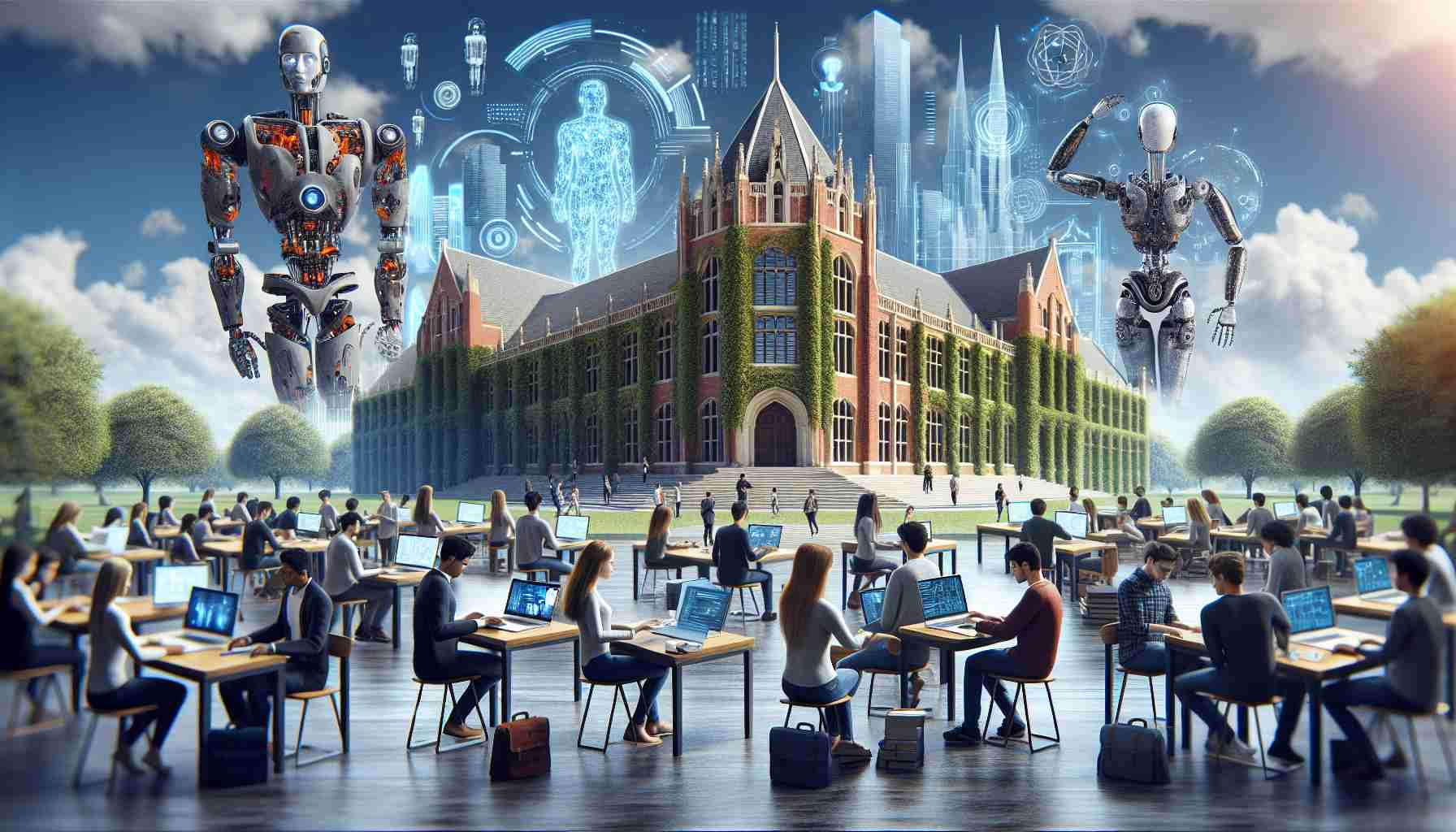At a recent symposium held by Harvard’s Faculty of Arts and Sciences (FAS), esteemed scholars including Professor Latanya Sweeney, engaged in a fascinating exploration of how artificial intelligence (AI) is poised to profoundly transform the digital and academic landscapes. With AI-generated content predicted to dominate the internet in a few years, questions about authorship and academic integrity were at the forefront.
Professor Sweeney introduced a future scenario where AI’s growth leads to a primarily AI-generated web. This potential shift skyrockets the importance of understanding how to responsibly integrate AI into academia; a point echoed by FAS’s Dean Hopi Hoekstra, who cited the diverse expertise within the Harvard community as essential in addressing AI’s ethical and societal challenges.
During a student-led discussion, philosophy and math student Chinmay Deshpande paralleled AI’s impact to that of the internet’s dawn, suggesting the need for a fresh approach to pedagogy. Similarly, computer science concentrator Naomi Bashkansky advocated for Harvard to spearhead crucial dialogues surrounding an AI-centric world by incorporating AI education in varied disciplines.
Legal scholarship also had a voice at the event, with Harvard Law student Kevin Wei emphasizing the urgency for Harvard to shape conversations about the imminent societal change from AI advancements, particularly affecting economics and work.
A panel on artistic and academic originality, co-hosted with humanities and ethics centers, reviewed the concept of authorship in an era where AI complicates traditional notions. Professor David Joselit suggested treating AI as a distinct genre, arguing it alters the dynamics of authorship.
The symposium also featured a presentation on how Harvard Library’s research reflects student use of AI academically. FAS administrators and tech specialists showcased AI tool applications enhancing their workflows and instruction methods.
A vibrant poster exhibition from the “Tech Science to Save the World” course presented student projects on technology’s role in addressing societal issues. Finally, presentations from the “Rise of the Machines?” class gave attendees a glimpse into the current and future landscape shaped by generative AI.
The symposium at Harvard FAS delves into a future where AI’s impact on academia and society cannot be overstated. Here are some of the most important questions and key challenges or controversies associated with this topic:
1. How can academic integrity be maintained in an era of AI-generated content?
Maintaining academic integrity involves developing clear guidelines on the use of AI in creating and assisting with academic work, ensuring that AI is used to supplement human intellect, not replace it.
2. What ethical considerations arise from AI influencing various aspects of society?
The ethical considerations include privacy concerns, potential biases within AI algorithms, ensuring equitable access to AI resources, and addressing the digital divide.
3. How will authorship and originality be affected by the rise of AI?
This challenge focuses on redefining authorship and ensuring proper attribution for AI-assisted or generated works, while also maintaining appreciation for human creativity.
Some advantages of AI include:
– Improving efficiency and productivity in academic research and workflows.
– Personalizing education and enhancing learning experiences.
– Facilitating interdisciplinary research and innovative solutions to complex problems.
The disadvantages may comprise:
– Potential loss of jobs due to automation.
– Issues of data privacy and increased surveillance.
– Amplification of existing biases if AI systems are trained on skewed datasets.
For related information, Harvard’s main domains offer a plethora of resources:
– For Harvard Law’s stance on legal issues of AI, you can visit Harvard University.
– The Harvard Library initiatives on AI can be found on Harvard University.
– Philosophical perspectives and humanities’ insights can be explored through the Faculty of Arts and Sciences at Harvard University.
While I can’t provide a current article with the specific content discussed, the issues explored in the symposium are crucial to shaping a responsible and equitable AI-enriched future.

